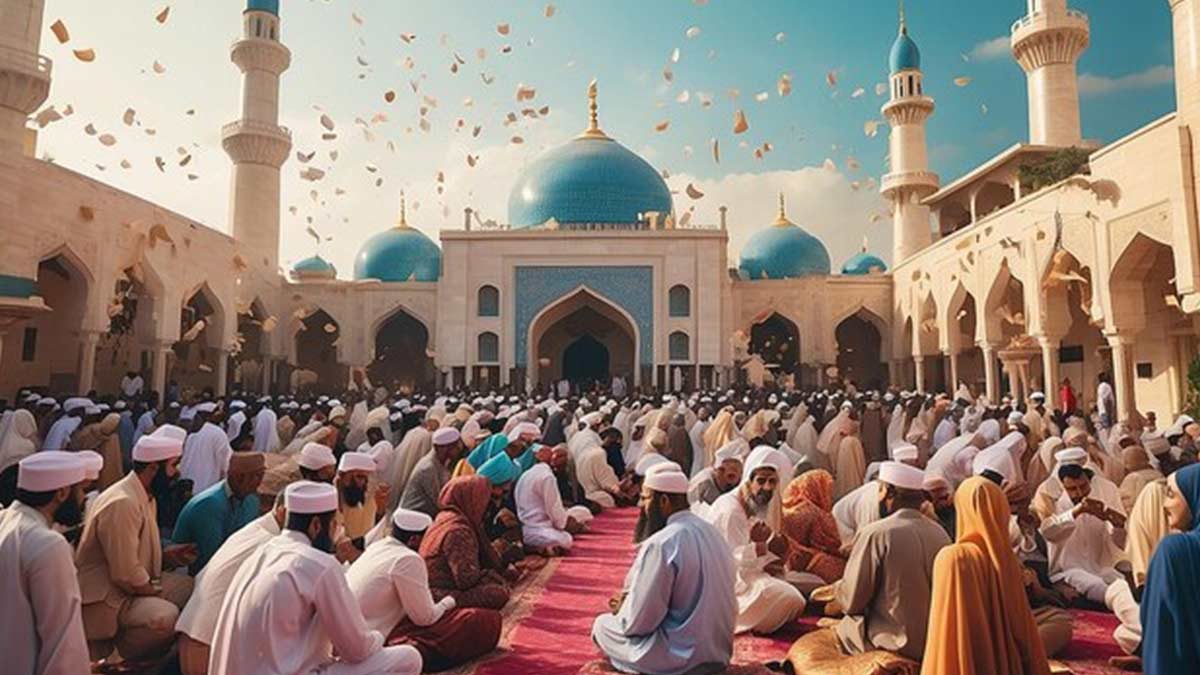Is a significant Islamic holiday celebrated by Muslims worldwide. It marks the end of Ramadan, the holy month of fasting, prayer, reflection, and community. In 2024, Eid-ul-Fitr is expected to be observed on the evening April 09th, subject to the sighting of the moon.
History and Significance:
Eid-ul-Fitr holds immense religious and cultural importance in Islam. The festival’s origins date back to the time of Prophet Muhammad, who encouraged Muslims to celebrate two days of festivity, Eid-ul-Fitr and Eid-ul-Adha, as a way of thanking Allah for his blessings.
Eid-ul-Fitr is a time of joy, gratitude, and generosity. It signifies the end of the month-long fasting period of Ramadan, during which Muslims abstain from food and drink from sunrise to sunset as an act of worship and purification. The festival emphasizes the importance of self-discipline, spiritual reflection, and empathy for the less fortunate.
Celebrations:
Eid-ul-Fitr celebrations typically begin with the sighting of the new moon, which marks the end of Ramadan. Muslims gather for special prayers known as Salat-ul-Eid, held in mosques, open spaces, or designated prayer grounds. The prayers are followed by a sermon, where the imam (religious leader) addresses the community, emphasizing themes of unity, forgiveness, and compassion.
After the prayers, Muslims engage in festive activities that vary by cultural traditions but generally include exchanging greetings and gifts, wearing new clothes, decorating homes and mosques, and preparing special meals and desserts. Charity and acts of kindness are also central to Eid-ul-Fitr, with Muslims encouraged to give to the less fortunate through Zakat al-Fitr (charity given before Eid prayers) and other charitable deeds.
The atmosphere during Eid-ul-Fitr is one of joy, togetherness, and gratitude. Families and friends come together to share meals, visit each other, and participate in social gatherings. It is a time of reconnecting with loved ones, strengthening community bonds, and expressing gratitude for blessings received during Ramadan.
In conclusion, Eid-ul-Fitr is a joyous and spiritually significant occasion for Muslims worldwide. It symbolizes the completion of a month-long journey of self-discipline, spiritual growth, and devotion. The festival’s celebrations highlight the values of unity, generosity, and compassion, fostering a sense of belonging and solidarity among Muslims of diverse backgrounds.




